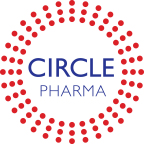The prize was awarded for their work on discovering how cells detect and respond to changes in oxygen availability, a process that is key to the survival of many cancers.

SOUTH SAN FRANCISCO, Calif.--(BUSINESS WIRE)-- Circle Pharma, Inc. is delighted to congratulate Dr. Kaelin, on having been jointly awarded the 2019 Nobel Prize in Physiology or Medicine with co-recipients Sir Peter J. Ratcliffe of Oxford University and Dr. Gregg L. Semenza of Johns Hopkins University School of Medicine. The prize was awarded for their work on discovering how cells detect and respond to changes in oxygen availability, a process that is key to the survival of many cancers.
Dr. Kaelin is a professor in the Department of Medicine at the Dana Farber Cancer Institute at Harvard Medical School and a Howard Hughes Medical Institute investigator. Dr. Kaelin is also an advisor to Circle Pharma.
In separate work, Dr. Kaelin and his colleagues at Dana Farber Cancer Institute identified cyclins A and E as potential targets for disrupting the growth of certain cancers. Their studies with peptide tool compounds showed that inhibiting these targets can selectively kill cancers that are dysregulated in the Rb pathway, in a process known as synthetic lethality. With guidance from Dr. Kaelin, Circle is developing macrocycles that inhibit cyclins A and E as potential new cancer therapies.
“We are thrilled that the pioneering work of Drs. Kaelin, Ratcliffe and Semenza has been recognized with the award of the Nobel Prize and congratulate them on this well-deserved recognition,” said Dr. David J. Earp, Circle’s CEO.
About Circle Pharma, Inc.
Circle is developing a new paradigm for macrocycle drug discovery based on rational design and synthetic chemistry. Circle’s technology facilitates the design and synthesis of intrinsically cell-permeable macrocycles that can address both intra- and extra-cellular therapeutic targets, and can be delivered by oral administration. Circle’s macrocycle development platform is applicable across a wide range of serious diseases; the company is initially focusing its internal development efforts on intracellular protein-protein interactions that are key drivers in cancer. Its lead program targets cyclins A and E, which are part of the regulatory machinery that controls the progression of cells through the cell growth and division cycle. Inhibiting cyclins A and E has been shown to be synthetic lethal in cancers that carry mutations causing dysregulation of the Rb pathway.
More information: www.circlepharma.com
View source version on businesswire.com: https://www.businesswire.com/news/home/20191008005361/en/
Source: Circle Pharma, Inc.





